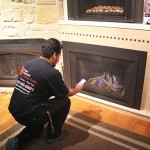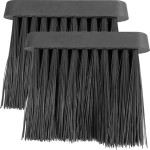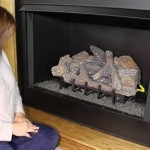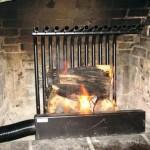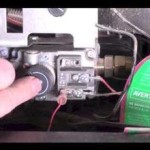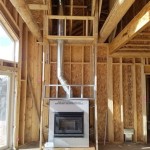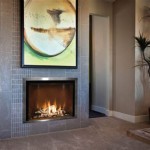Why Does My Ventless Gas Fireplace Smell?
Ventless gas fireplaces offer a convenient and efficient way to add warmth and ambiance to a home. However, one common concern among owners is the occasional presence of an unpleasant odor. Understanding the potential causes of these smells is crucial for maintaining a safe and comfortable living environment. This article explores the various reasons why a ventless gas fireplace might emit unusual odors.
Incomplete Combustion and Carbon Monoxide
One of the most serious concerns regarding odors from a ventless gas fireplace is the potential for incomplete combustion. Gas fireplaces, whether vented or ventless, rely on a specific air-to-fuel ratio for efficient and complete burning of the gas. When this ratio is imbalanced, the combustion process becomes incomplete, leading to the production of various byproducts, including carbon monoxide (CO). Carbon monoxide is an odorless, colorless gas, making it difficult to detect without a CO detector. However, incomplete combustion can also produce other detectable odors alongside CO, often described as a smoky or sulfurous smell.
Several factors can contribute to incomplete combustion. A malfunctioning burner assembly is a common culprit. Burners can become clogged with dust, debris, or carbon deposits, obstructing the proper flow of gas and air. This obstruction disrupts the ideal air-to-fuel mixture, leading to inefficient burning. Regular cleaning and maintenance of the burner components are crucial to prevent this issue. Another potential cause is inadequate ventilation in the room where the fireplace is located. While ventless fireplaces don't require a chimney, they still need sufficient fresh air to support combustion. If the room is too airtight, the fireplace may not receive enough oxygen, resulting in incomplete burning and odor production. Ensure the room meets the manufacturer's recommended ventilation requirements.
It is vital to emphasize the danger of carbon monoxide poisoning. Symptoms of CO poisoning can include headaches, dizziness, nausea, and confusion. Prolonged exposure can lead to unconsciousness and even death. If any of these symptoms are experienced, immediately evacuate the premises and seek medical attention. Installing and maintaining a working carbon monoxide detector near the fireplace is non-negotiable for safety.
Dust Accumulation and Burning Debris
Another frequent cause of odors emanating from a ventless gas fireplace is the burning of accumulated dust and debris. When the fireplace is not in use, dust particles, pet dander, and other airborne contaminants can settle on the burner assembly, logs, and internal components. Upon ignition, these accumulated particles are subjected to intense heat, leading to their combustion and the release of unpleasant odors. These smells are often described as musty, burning dust, or even resembling a chemical odor, depending on the composition of the materials being burned.
Regular cleaning is the most effective method for preventing this type of odor. Before the start of the heating season, thoroughly vacuum the fireplace, paying close attention to the burner assembly, logs (if applicable), and any crevices where dust might accumulate. Use a soft brush attachment to gently remove dust without damaging the components. Additionally, consider covering the fireplace when it's not in use to minimize dust accumulation. It is also important to check for any foreign objects that may have fallen into the fireplace, such as leaves, insects, or small toys. These objects can also burn and create unpleasant smells.
The type of logs used in the fireplace can also contribute to the odor. Some artificial logs are made from materials that release a distinct smell when heated, particularly during the initial few uses. If you've recently installed new logs, this could be the source of the odor. Allow the fireplace to burn for a few hours with proper ventilation to allow these initial odors to dissipate. If the smell persists, consider contacting the manufacturer to inquire about the composition of the logs and any potential odor issues.
Gas Leaks and Malfunctioning Components
While less common, gas leaks and malfunctioning components can also contribute to unusual odors emanating from a ventless gas fireplace. A gas leak, even a small one, can produce a distinctive sulfur-like or rotten egg smell. This is due to an additive called mercaptan, which is intentionally added to natural gas and propane to make leaks detectable. If a sulfur smell is detected, immediately shut off the gas supply to the fireplace and evacuate the premises. Contact a qualified gas technician to inspect the fireplace and gas lines thoroughly. Do not attempt to repair the leak yourself, as this can be extremely dangerous.
Other malfunctioning components, such as a faulty gas valve or regulator, can also disrupt the proper flow of gas and lead to incomplete combustion or irregular burning patterns. A malfunctioning valve might leak small amounts of gas even when the fireplace is turned off, contributing to a persistent odor. Similarly, a faulty regulator could deliver an incorrect gas pressure to the burner, leading to inefficient burning and odor production. If you suspect a malfunctioning component, consult a qualified fireplace technician for diagnosis and repair. Attempting to repair gas components without proper training and experience is extremely hazardous.
Moreover, improper installation of the fireplace can also lead to odor issues. Ensure that the fireplace was installed according to the manufacturer's instructions and local building codes. Incorrect connections or inadequate ventilation can contribute to gas leaks or incomplete combustion. If you're unsure about the installation, it's advisable to have it inspected by a professional.

Vent Free Fireplace Odor

Vent Free Fireplace Odor

Why Do My Gas Logs Smell Foster Fuels

Ventless Gas Fireplace Maintenance Guide Fireplaces Direct Learning Center

Why Do Ventless Gas Logs Emit Odors The Chemistry Behind It Embers Custom Fireplace S

Why Do My Gas Logs Smell Foster Fuels

Ventless Gas Fireplace Maintenance Guide Fireplaces Direct Learning Center

ᑕ❶ᑐ Ventless Gas Fireplace Insert Disadvantages Of Use

Gas Fireplaces The Odors They Can Cause

A Ventless Gas Fireplace Doesn T Belong In Your Home Greenbuildingadvisor
Related Posts

